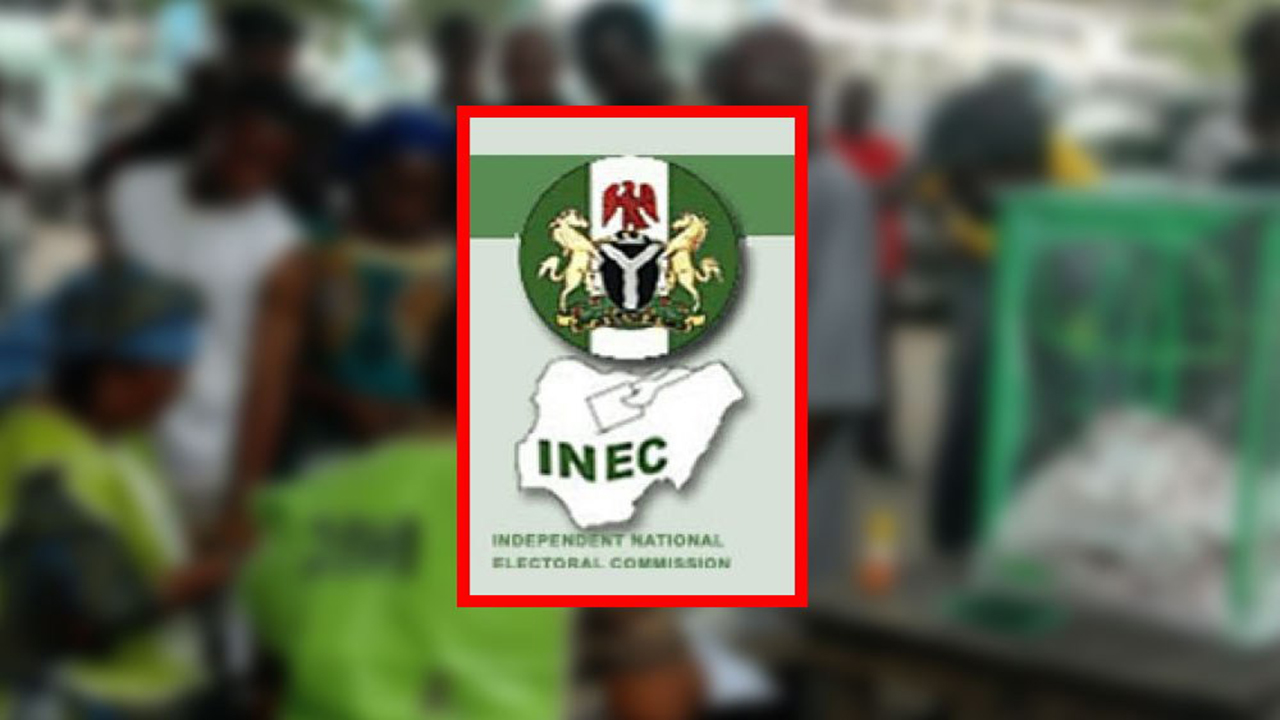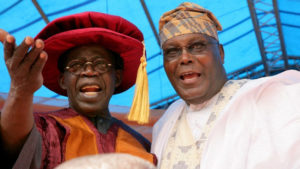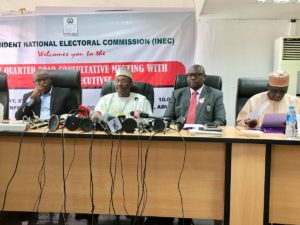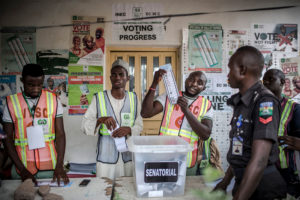The postponement of the February 16th national elections by the Independent National Electoral Commission (INEC) has far-reaching implications beyond the more obvious fact that Nigerians will have to wait a week to select a new leader. The postponement which was announced about six hours before the polls were set to open has had various impacts on citizens, political parties, local and international media and observers, as well as businesses among others. Some of these costs are explained below.
Economic Costs
The economic cost of the postponement has been estimated as $2.2 billion according to a report by think tank SBM Intelligence and public affairs firm Gatefield. The Lagos Chamber of Commerce and Industry estimated $1.5 billion, according to the Chamber’s General Director, Muda Yusuf .
“The economy was on partial shutdown the day before, and a total shut down on Saturday for the elections,” Muda stated. The estimates given by these respected organisations narrate the overall economic cost for the nation. However, it is worth assessing how the sectors have been affected by the postponement.
Some of the factors leading to this loss include:
- Disruption of business activities – including supply chain, such as manufacturing, construction and food -related industries and ancillary services (e.g. transportation), which are constrained by tight schedules to fulfil orders and shipments
- Disruption of social events – recreation and events which typically occur during weekend and had to be put on hold or cancelled entirely will have contributed significantly to the economic losses incurred.
- Increased wage cost – even though many workers had the day off, salary earners would still need to be paid therefore increasing the wage to revenue ratio of organisations
- Overall inconvenience to daily life and reduced consumer spending – the restriction on movement which had been placed to allow for safety and ease of reaching voting units meant that even after the postponement consumers were home all day, and many businesses remained closed.
With an estimated Gross Domestic Product of about $420 billion as at the end of 2018, the foregone GDP for the various economic sectors are indicated in the chart below:
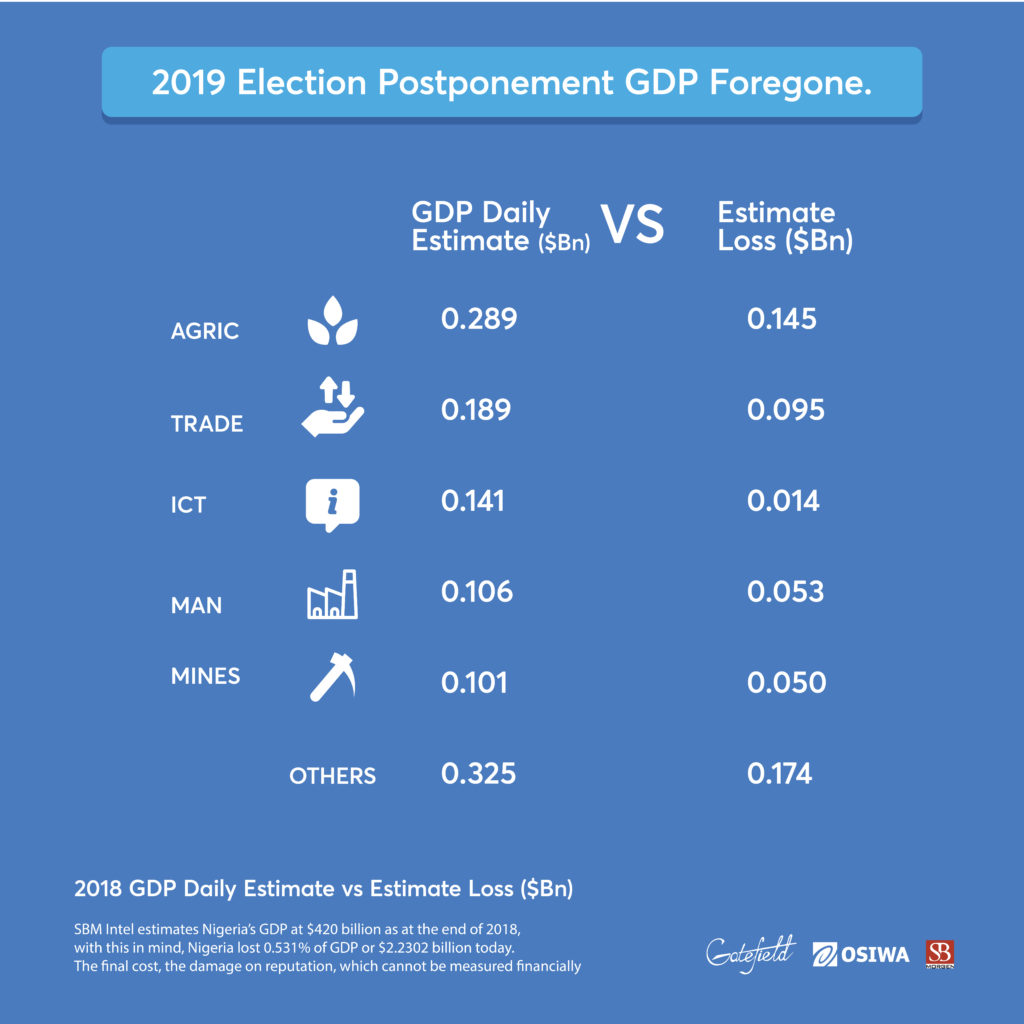
Voters
This group is the largest and perhaps the most important group which has been affected by the postponement of the elections. Many voters travelled long distances to in order to be present at their voting centers. On the morning of February 16th, the day the elections would have held, pictures were seen circulating online of people who were stranded sleeping outside in uncomfortable places. Many voters will incur extra costs to return to their bases and then travel back for the elections. Those who decide to stay back at their voting centers will also incur extra cost for feeding, accommodation and other logistics. A third and rather unpleasant option would be to return to their bases and give up the opportunity to vote.
For each of these options, there are cost associated even though these costs are not entirely monetarily.
Political Parties
Political parties have also been significantly affected by the postponement. Having deployed Polling Agents (PA) to 119,974 Polling Units (PU) across Nigeria, political parties have been estimated to incur the following losses due to the postponement:
| Cost Category | Amount (N Billion) |
| Cost of PU Polling Agents House of Reps | 7.98 |
| Cost of PU Polling Agents Senate | 6.18 |
| Cost of PU Polling Agents Presidential | 3.60 |
| Cost of Ward Polling Agents | 19.29 |
| Cost of LGA Polling Agents | 5.65 |
| Total Cost of Polling Agents For 1 Day of Elections | 42.70 |
As the table indicates, about N42.7 billion would have been incurred if the election had held, and given that the decision to postpone was announced in the early hours of the election day, it is highly plausible that political parties lost this much on February 16.
The estimates were made based on the number of agents deployed per state, and the political parties active in each state.
INEC
The electoral commission is not exempted from the implications of its decision to postpone the general elections. No doubt the agency will incur extra cost to redeploy personnel and materials which it had already done. The commission, based on its budget, would have incurred a loss of about N6.2 billion. The expenses which have led to this include, logistics, daily allowances, deployment of support staff, foreign observers, setting up of the INEC situation room, voter education, etc.
In addition, the commission has also incurred non-monetary cost in terms of waning trust by Nigerian voters in its ability to credibly conduct the elections. In line with this, several Nigerians have taken to the internet to demand the resignation of Mahmood Yakubu, the chairman of the electoral commission.
With the incredible costs incurred, both monetary and otherwise, it is worth hoping that INEC gets it right in the coming week. Nigerians might not as be as patient.

